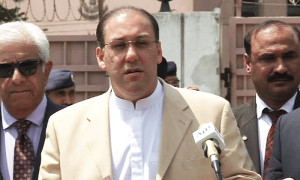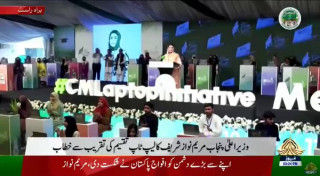India is growing in many ways!!!
[h=1]smelly truth of India's incredible growth[/h]
By
Dean NelsonWorldLast updated: January 5th, 2010
15 CommentsComment on this article
I’m on holiday in Incredible India, walking barefoot along Mahabalipuram’s long sandy beach, my wife’s hand in mine. The Bay of Bengal’s high curling waves crash and froth at our feet, I can feel the water in the sand slip through my toes and the strong sea breeze ruffles what hair remains.
It’s a fleeting moment of romance and freedom, one where you consciously think ‘life is good.’ Fleeting, because with the next step I can feel something squidgy underfoot and it isn’t sand.
It’s a dog turd, I think, as I hop towards the waves, but as I look further along the shore the high water line is marked clearly in brown dashes, broken only by the half-completed sewer channel which pours the town’s human waste onto its ‘paradise’ beach and into the sea, which, understandably, returns to sender.
I’m literally hopping mad, and in this raving state a number of undeniable truths become clear to me:
India’s great strength and power is that the world wants to believe its ‘incredible growth story’ (IGS), that the great tortoises of the developed world are so desperate to believe India can drive new growth that they cannot smell the truth: India talks a good game, tells a cracking yarn, but cannot finish what it starts.
In Delhi, the concrete columns which support its modern and otherwise impressive Metro are cracking and collapsing. Sales of the world’s cheapest and most revolutionary car, the Tata Nano, have slumped because few can stand the waiting time. India’s top nuclear scientists recently revealed its atomic bomb tests ‘fizzled’ rather than banged, and its celebrated Chandrayaan lunar mission came to a halt after a power cut.
In the 100 per night hotel we chose here (Steve Borgia’s IndEco Hotel from Alastair Sawday’s Special Places to Stay in India, whose paid-for recommendations should be treated with caution), the restaurant was filthy, grubby sheets were stained, ugly cables sagged from the noisy cheap air conditioner, squashed mosquitoes splattered the walls black and red, and staff begged for ‘backsheesh’ on the paths. Apparently it has won prizes for its ‘green’ credentials.
On the beach beyond, the sandy path to the ancient stone temples were ankle deep in cardboard party plates of leftover veg curry.
We apologise to our children, and move to a 130 a night hotel with a slightly cleaner beachfront, and check out the bathroom. The towel rail is at a 60 degree angle – presumably, as with so much else in India, someone said ‘that’ll do’ while the owner was wearing rich man’s shades elsewhere.
The trick to surviving in India and believing its IGS lies in not looking too closely. I made this mistake on a recent trip to Old Delhi on its wondrous Metro (which is spacious, frequent, air-conditioned, clean and reliable). Even here, in this extraordinary feat of planning and engineering, the walls don’t quite reach the skirting.
The reality of modern India is slapdash, lazy management, barely trained, poorly paid tradesmen who leave early, and bodge-it contractors in league with corrupt officials who take their cut by halving the amount of bitumen in roads or ending sewage channels 30 feet short of the sea.
This year the great IGS will be inspected by governments and television viewers around the world when the Commonwealth Games opens (or not) in New Delhi in October. So far, some projects have been effectively abandoned, the city’s thousands of slum dwellers are being hidden behind bamboo screens, and at this moment many believe the venues will not be completed on time.
The top Commonwealth Games executive posted from London monitor progress operates out of a trolley suitcase after more than two years in the city because his office is still not ready.
The opening of the games will be India’s moment of truth, when it can no longer be a ‘soft superpower’, the country the world most wants to believe in, and must stand or fall as a real developed economy.
As I hop along the brown-fringed shore line of Tamil Nadu’s ‘paradise’ coast, shaking my foot and cursing wildly, I hope you’ll forgive my nagging doubts


































